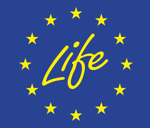
In 2020, the Regulation of the European Parliament and the Council of the Union was published regarding the minimum requirements for the reuse of water, which will be applicable from June 27, 2023 (2020/741/EU).
Within the recitals of the same, the EU’s water is considered a scarce resource to safeguard in a context of adverse changes in the climate combined with the continuous increase in water use for agricultural, industrial, and urban purposes. Therefore, it is recognized as a fundamental objective of the Regulation to alleviate this scarcity by promoting the use of reclaimed water through the establishment of harmonized minimum requirements that avoid obstacles to the free circulation of agricultural products that will use this type of water in their production process.
Having the legal form of Regulation, its rules will be mandatory and directly applicable, unlike Directives that give more flexibility to adapt them to the regulations of each member state. In addition, this will also contribute to guaranteeing the safety of the use of reclaimed water and increasing the confidence of the population in its use. However, it is recognized that member states may use reclaimed water for uses other than agricultural irrigation, such as used in the industrial sector, or for environmental and recreational purposes.
“Promoting the use of reclaimed water and its legal regulation will guarantee its safety and increase population’s confidence in its use”
Altogether, it will pursue the goals of ensuring that reclaimed water is safe for irrigation, and human and animal health, promoting the circular economy, contributing to the objectives of Directive 2000/60/EC and the objective of Sustainable Development of the United Nations 2030 Agenda. In addition, the Regulation, among other aspects, is also consistent with and complements the provisions of other EU legislative acts referring to risks to health and the environment, regulates routine quality controls, establishes generic standards for operators of regenerating stations, specifies the procedure for requesting permits for the production and supply of reclaimed water, details the bases for establishing irrigation management plans, outlines the sanctions regime applicable to infractions, highlights cooperation between member states at a cross-border level and, also, the right of access to environmental information by the public prevails.
Although the differences between the Regulation and the Royal Decree are not substantial, some should be highlighted. In the first place, within the framework of the European Regulation, four categories of qualities are foreseen, instead of the three already existing in the Spanish regulations. Thus, category A of the Regulation could, although not completely, be assimilated to quality 2.1 of the Spanish Royal Decree. In addition, European regulations distinguish more quality levels for crops about direct contact or not of reclaimed water with the edible part of it and even the type of irrigation. In this way, category 2.1 in Spain, dedicated to crops for raw food, would be more divided in the European regulations by distinguishing three levels and not just one, depending on the type
of irrigation (drip or not) and whether the edible part of the crop is or is not in direct contact with the reclaimed water. For its part, the Spanish regulations detail more types of activities for the irrigation of crops (for example, of an ornamental nature), although these types would be included in more generic headings within the Regulation (for example, non-food crops).
Given this predominance of reused water in the agricultural sector, the EU has recently adopted the Regulation of the European Parliament and the Council (2020/741/EU) for the reuse of reclaimed water in agricultural irrigation, the objective of which is to ensure that reclaimed water is safe for irrigation, human and animal health, promote the circular economy and contribute to sustainable development. In this sense, since 2007 Spain has had a Royal Decree regulating reclaimed water reuse (RD 1620/2007). Although the differences between the European Regulation and the national Royal Decree are not substantial, they do exist. For this reason, Spain must adapt the current regulations to the Commission Regulation as soon as it is in force. This will mean an adaptation challenge that should be used as an opportunity to improve the image of our agricultural products and their level of penetration in the European market.
“It is essential to adopt a long-term policy where reused water constitutes an additional source to conventional water sources”
Finally, the high cost of wastewater treatment and regeneration has been identified as a barrier to its reuse. In this sense, adopting public policies and tariff systems must consider and value the environmental benefits and other positive externalities of the reuse of water. For this, it is essential to adopt a long-term policy where reused water constitutes an additional source to conventional water sources in the water planning of hydrographic basins.